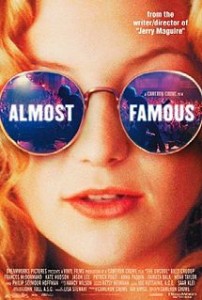[contextly_auto_sidebar id=”QsLx7wwZeCPiHbCCxGIMq5cuGHsw7dvf”]
DOES music journalism have any interest in music, as opposed to celebrity and wardrobe? What happens to the audience when they get fluff instead of criticism, paparazzi shots instead of real journalism?
A tough, intelligent new article by my friend Ted Gioia is sure to lose him friends among the fraternity of culture scribes: “Music Criticism Has Denegerated Into Lifestyle Reporting” looks at a process that’s been going on for decades now.
I’ve just spent a very depressing afternoon looking through the leading music periodicals. And what did I learn? Pretty much what I expected. I found out what the chart-topping musicians are wearing (or, in many instances, not wearing). I got updates on their love life, and learned whose marriages are on the rocks. I read updates on the legal proceedings of the rich and famous. I got insights into the food preferences and travel routines of megastars. And I read some reviews of albums, and got told by “‘critics” (I use that term loosely) that they were “badass,” “hot,” “sexy,” “tripped-out,” and “freaky.”
Gioia, a music historian, is also able to put this in historical perspective: Music started out as part of daily life, but the recording industry turned it into a product separate from its context. (One caveat: I’m not sure it’s fair to blame this state of affair on the great critic Lester Bangs, though the way Rolling Stone, Creem and the others covered the social/political eruptions of the ’60s and ’70s surely had unintended consequences.)
He also looks at where this development leads us:
The biggest problem with lifestyle-driven music criticism is that it poisons our aural culture. Discerning consumers who care about music and have good ears should be the bedrock of the music business, but many of them have given up on new artists because they can’t find reliable critics to guide them. Record labels, for their part, need frank, knowledgeable feedback from critics—both to keep them honest and hold them accountable—but such input is in short supply and veering towards extinction. Above all, artists deserve a milieu in which musical talent is celebrated and given some acknowledgement in the media.
I urge everyone who cares about music and journalism to read this story.
ALSO: Speaking of music and journalism, some of my best memories of my early years come from my visits to South by Southwest in the ’90s, and seeing tons of indie rock and alt-coun try acts back to back. Even back then, people complained about the Austin festival getting too big and too commercial, and the process has apparently increased drastically since then.
try acts back to back. Even back then, people complained about the Austin festival getting too big and too commercial, and the process has apparently increased drastically since then.
Jon Pareles has this sharp story about the ensuing corporate takeover.
Sponsor-suggested hashtags were all over the place at the 28th annual South by Southwest Music festival here: on walls, on stages, on billboards, on vehicles, on T-shirts, on stickers, on cellphone apps. A newcomer to SXSW might well believe that the whole thing was created to induce social-media marketing.
There’s still, even with an overdose of Lady Gaga — who said “Without sponsorships, without those companies coming together to help us, we don’t have any more artists in Austin” — and endless branding, plenty of good acts coming to Austin these days, Pareles and others are glad to note.

Great article. I give a lot of my music away (electronic, soul and dance not that crappy new EDM shit) because I don’t perform right now although I’m well known in my genre. Meanwhile I’m working on an album that will be for sale next year and we’ll see how sales go. Meanwhile again I’m part of a lovely music community where everyone helps each other so it is fulfilling in that regard. Doesn’t pay the rent, though.